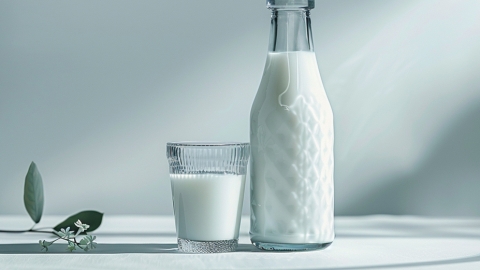Can persimmon cakes and milk be eaten together?
Generally speaking, persimmon cakes and milk can be consumed together, but excessive consumption is not recommended. The detailed explanation is as follows:

Persimmon cakes are rich in glucose, fructose, vitamin C, and dietary fiber. Glucose and fructose can quickly supply energy to the body, while dietary fiber helps promote intestinal motility. Milk contains high-quality protein, calcium, and vitamin D, among other nutrients. Protein is an essential component of the body. Consuming these two foods together can complement each other in terms of energy supply and vitamin supplementation, providing more comprehensive nutritional support for the body.
However, persimmon cakes contain relatively high levels of sugar, and excessive consumption may easily lead to a rapid increase in blood sugar levels. Meanwhile, the fat and protein content in milk should also be consumed in moderation to avoid increasing the digestive burden. Additionally, persimmon cakes contain a certain amount of tannic acid. Although the tannic acid content decreases after drying and processing, it is still advisable not to eat them on an empty stomach to avoid the formation of indigestible substances caused by the reaction between tannic acid and stomach acid.









